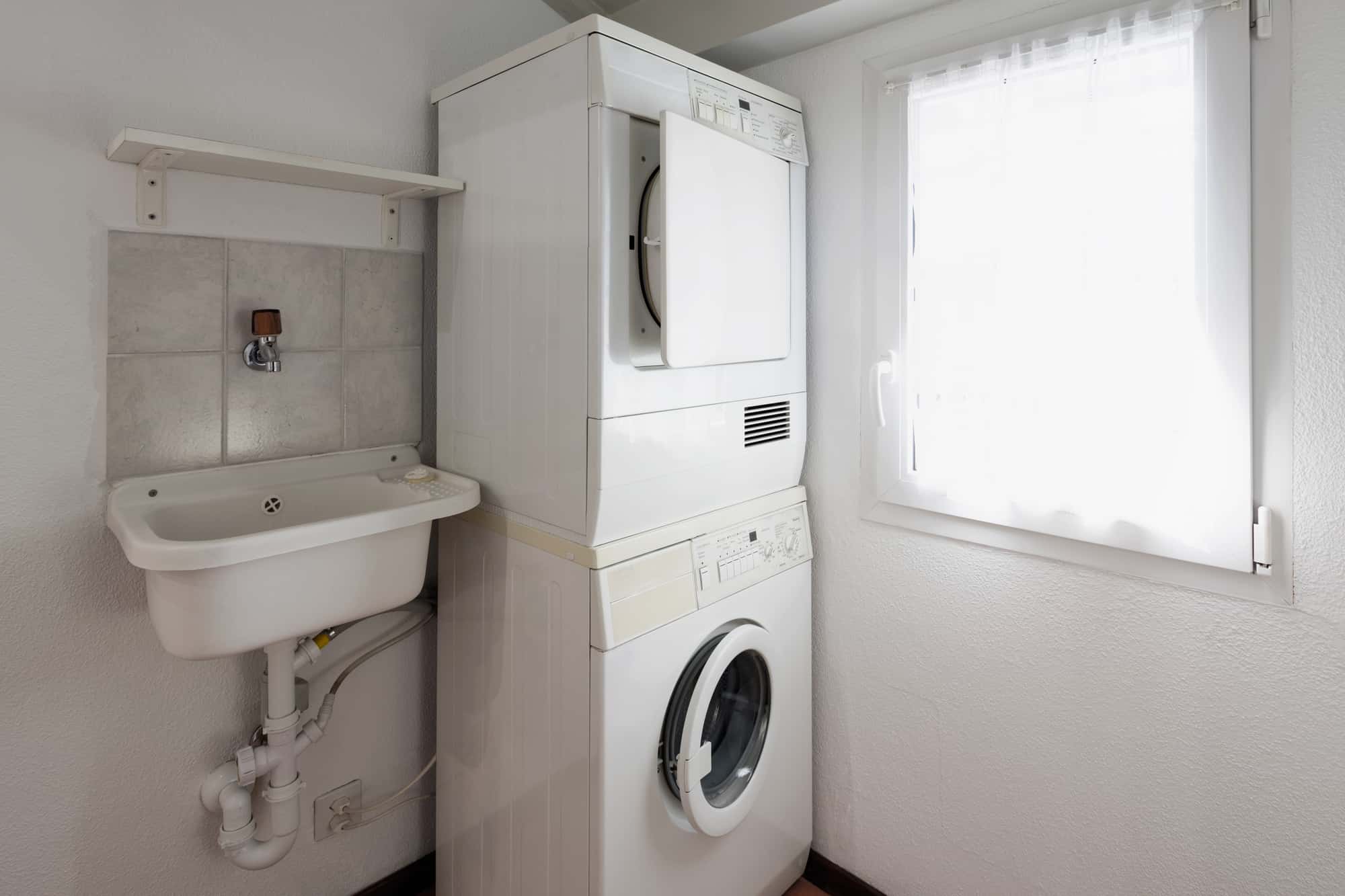Table of Contents
Experiencing a sewer smell in your house at night can be both unpleasant and concerning. I understand that it disrupts the comfort of your home and can lead to a restless night.
These odors typically arise when the house is quiet, and the hustle and bustle of the day have settled, making the smell more noticeable. It’s important to recognize that, while common, a persistent sewer smell is not something you should ignore, as it may signify an underlying plumbing issue.

Identifying the root cause of this sewer odor is the first step toward a solution. In some cases, the smell may be due to a dry P-trap, which is designed to block sewer gases from rising into your home.
If the water in the P-trap evaporates, such as in a rarely used sink or drain, the barrier against these odors is no longer present. Alternatively, the smell could be an indication of a more serious problem, like a broken vent or sewer line, which would require professional attention.
My approach focuses on effective diagnostic techniques and practical solutions to restore the sanitary and fresh atmosphere of your living space.
Through careful investigation and a thorough understanding of household plumbing systems, I’ll guide you on how best to address and resolve these unwelcome sewer smells.
Understanding Sewer Smells
In deciphering the unpleasant mystery of nightly sewer odors, it’s essential to grasp the causes and recognize the health implications these smells may carry.
Causes of Sewer Smell in House
Sewer gas is a complex mixture of toxic and non-toxic gases that can seep into homes, usually through faulty plumbing. This mixture predominantly includes methane, hydrogen sulfide, and ammonia, which are byproducts of organic matter decomposition.
Notorious for its rotten egg smell, hydrogen sulfide is often the primary culprit when identifying an omnipresent sewage stench.
In households, issues such as dry drain traps, clogged vents, cracked pipes, or improperly installed p-traps can allow these gases to enter and persist, particularly noticeable at night when the house is less ventilated and the air more still.
- Common Points of Entry:
- Dry drain traps
- Clogged vents
- Cracked sewage pipes
- Poorly installed p-traps
Health Risks Associated with Sewer Gas
Exposure to sewer gas, especially when concentrations are high or exposure is prolonged, can result in a range of health risks. Hydrogen sulfide is notorious for causing dizziness, nausea, and even vomiting, while methane poses a risk of explosion in large quantities.
Chronic exposure, even at low levels, may contribute to fatigue, poor memory, and difficulty with concentration. Prolonged inhalation of these gases can lead to sewer gas poisoning, compromising my clients’ health and manifesting as persistent headaches and trouble breathing.
It’s imperative to take immediate action when detecting sewer smells to mitigate health risks and maintain a safe living environment.
- Symptoms of Sewer Gas Exposure:
- Immediate: Dizziness, nausea, vomiting, headaches
- Long-term: Fatigue, memory issues, concentration problems, trouble breathing
Identifying the Source
When facing a sewer smell in your house at night, pinpointing the exact origin is the crucial first step in the remediation process. The unpleasant odors are often tied to issues within specific areas, each with its own set of common culprits.
Common Sources in Bathrooms
In bathrooms, drains are frequent offenders, as they can harbor biofilm and sewage remains. If a P-trap, the curved section of the pipe under the sink dries out, it may allow sewer gas to rise into the home.
Regularly flushing these traps with water can prevent odors. For toilets, a faulty toilet trap or wax seal can release odors if not properly sealed.
Kitchen and Laundry Room Issues
In kitchens, the wash basin drain often gathers food debris, which can decompose and create a smell.
Similarly, in laundry rooms, a laundry tub or washer drain may become the source of sewer gas if not adequately maintained. Ensuring that all fixtures have intact P-traps and that no clogged drains persist will help mitigate odors.
Problems in the Basement and Drainage Systems
Basements can present unique challenges with floor drains and the household’s main vent pipe. Clogged drain pipes or a malfunctioning vent system can lead to a pressurized plumbing system, forcing sewer gas through even the smallest of openings.
Regular inspection of these systems, including the potential for clogged floor drains, is necessary to finding the source and resolving the issue.
Inspecting and Diagnosing

When identifying the cause of sewer smells in your house at night, it’s crucial to conduct a thorough inspection. This can determine whether you need to call a plumber or if there are simple steps you can take to address the issue yourself.
Professional Inspection
If you suspect a more complex issue, such as a cracked vent stack or a bad wax ring on the toilet, hiring a professional plumber is advisable. They are equipped with specialized tools and expertise to detect hidden leaks and loose connections that may not be readily apparent.
A plumber can also check for a missing cleanout plug, which is a common culprit for allowing sewer gases into your home. Professional diagnostic techniques ensure that all components of your plumbing system, including water traps and vent stacks, are intact and functioning properly.
DIY Inspection Tips
For a preliminary do-it-yourself inspection, start by checking the obvious: ensure all your drains have water in their traps, which prevents sewer gas from entering the home. Look for signs of a clogged drain or a wax ring that needs replacement under the toilets.
Simple checks like ensuring there are no cracks in your toilet’s base, testing if the cleanout plug in floor drains is secure, and listening for gurgling sounds that can indicate a venting problem, can be done without professional help.
If these initial steps don’t resolve the issue, I recommend contacting a professional plumber to conduct a more thorough investigation.
Addressing Common Issues

When the house smells like sewage at night, it’s often due to problems within the plumbing system that can be remedied. Common issues range from clogs and certain mechanical failures that develop over time.
It’s my job to help identify and guide you through fixing these concerns to ensure your home remains fresh and hygienic.
Clearing Clogs and Blockages
Clogs in drains are a typical cause of sewer smells. Over time, debris such as hair, soap scum, and food waste can build up, obstructing the flow through the pipes. I recommend using a plunger first to dislodge any loose material.
If that doesn’t work, a drain snake is a handy tool to remove more stubborn blockages. It’s important to routinely check and clear your drains to prevent such issues from escalating.
Repairing Leaks and Cracks
Cracked or leaking pipes can also lead to a sewage smell. A thorough examination of your plumbing system can reveal any leaks or cracks. Once identified, these should be sealed or the affected pipe sections replaced by a professional plumber.
For septic systems, ensuring regular maintenance and inspection of the septic tank is essential to prevent leaks that could cause odors to permeate.
Fixing Wax Ring and Seals
The wax ring seal beneath the toilet is crucial in preventing odors from escaping. If you notice a stronger smell near the base of the toilet, it could signify that the seal is compromised.
Replacing the wax ring is not overly complicated, but it requires removing the toilet. Make sure to replace any broken seals thoroughly to maintain a secure and odorless seal on your plumbing fixtures.
Ventilation and Prevention

In addressing the issue of sewer smell in the house at night, proper ventilation and prevention practices are key. I’ll guide you through maintaining plumbing vents, improving household ventilation, and conducting regular maintenance checks.
Maintaining Plumbing Vents
Plumbing vents, also known as vent stacks, play a crucial role in allowing fresh air to enter the plumbing system and balance the pressure. This helps to prevent sewer gases from entering the home.
It’s important to make sure that these vents are not obstructed by debris such as leaves or nests. An unobstructed vent pipe is essential for the proper function of your drain system.
Improving Household Ventilation
Effective ventilation in your home can greatly reduce the occurrence of sewer smells. Incorporate exhaust fans, especially in areas like bathrooms and kitchens, to help expel odors and introduce fresh air.
Ensure that these vents are clear of blockages and that they vent directly to the outdoors to effectively remove unwanted smells.
Regular Maintenance and Checks
Routine checks can prevent sewer smell issues before they start. Make it a habit to regularly pour water down infrequently used drains to maintain the water seal that prevents gas from rising into the home.
Checking for missing clean-out caps and ensuring that all plumbing fixtures have appropriate traps in place can also be pivotal in prevention. Regular inspection of the vent system for any signs of damage or wear can avert potential problems.
Remedies and Quick Fixes
When dealing with sewer smell in the house at night, prompt and effective solutions are crucial to restore comfort and ensure hygiene. I’ll walk you through some practical steps using common household items and homemade solutions.
Utilizing Household Items
Air Fresheners: While not a solution for the underlying cause, air fresheners can provide immediate respite from the foul odor. I recommend opting for those with natural scents to avoid overpowering the space.
- Baking Soda: This pantry staple is excellent for neutralizing odors. Sprinkle baking soda liberally around drains and let it sit overnight to absorb the smell.
- White Vinegar: For a deeper cleansing action, pour a cup of white vinegar down the drain and let it work for a few minutes before flushing with hot water.
Homemade Solutions
Creating a mixture of baking soda and white vinegar can produce a powerful cleaning agent. Here’s how to use this combination effectively:
- Pour half a cup of baking soda down the drain.
- Follow with a cup of white vinegar.
- Allow the mixture to fizz and sit for 10 minutes.
- Flush the drain with boiling water.
Using these simple, yet effective approaches, you can often address the nuisance of nighttime sewer odors emanating from your household drains.
When to Contact a Professional
Encountering a sewer smell in your home at night can be more than just unpleasant—it may signal a need for professional intervention. I recommend contacting a professional plumber if the following situations arise:
- Persistent Odor: If the smell does not dissipate using common home remedies, calling a professional is prudent.
- Signs of a Sewage Backup: Water backing up in your fixtures is a clear indication that something is amiss deeper in the system.
- Visible Leaks: Should you find evidence of water or sewage around a septic line, a plumber should address this immediately.
Furthermore, it’s essential to recognize when a situation is an emergency:
- Sudden, Strong Smells: If there’s a rapid onset of powerful odor, it could indicate a cracked sewer line. An emergency plumber should be called right away.
- Health Concerns: Sewer gas can sometimes contain harmful contaminants. If anyone in your home feels unwell, seek immediate medical attention.
Under these circumstances, hiring a local plumber is not just a question of convenience but safety. Specialists have the tools and expertise to diagnose and remedy complex issues such as septic line leaks or a cracked sewer line, and they understand the urgency behind any potential health risks.
In my experience, homeowners should not hesitate to contact a professional plumber when these warning signs become apparent.
Moreover, being proactive can prevent more significant problems down the road. Remember, ensuring the safety of your home environment is paramount, and prompt professional attention is key to achieving that.
Conclusion
Experiencing sewer odors in your home, particularly at night, can be both unpleasant and worrisome. My investigation into the problem has uncovered that common contributors include issues with plumbing systems or vent stacks, which require prompt attention.
If a house smells like sewage, I advise homeowners to first inspect their bathrooms and any area with drains.
For immediate solutions, I often suggest:
- Checking for dry traps: Ensure water is present in drain traps to block odors.
- Sealing leaks: Examine pipes for cracks or leaks and apply appropriate repairs.
- Vent pipe issues: Inspect the vent pipe for obstructions or damage, as these can cause a backup of smells into the house.
In more serious cases, when odors persist, I find it’s crucial to contact a professional plumber or a sewage system expert. Protracted exposure to sewer gases can lead to discomfort and, in extreme cases, even memory loss due to the presence of toxic substances such as methane.
A focus on industrial workplace environments is slightly different, as these require industrial-grade solutions and regular maintenance to manage large-scale waste systems effectively.
If you are facing a bathroom smell that arises only at night, consider routine checks and early interventions. It’s easier to manage when caught early, keeping your home environment healthy and odor-free. Remember, odor is often a symptom, and finding the root cause is key to a lasting solution.











